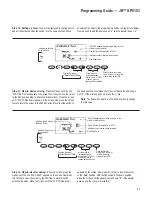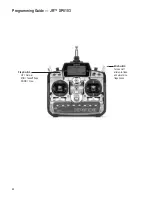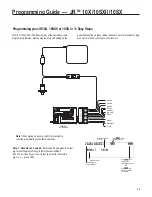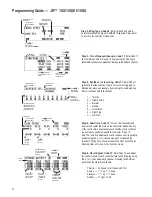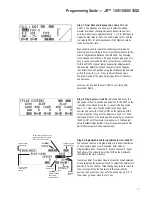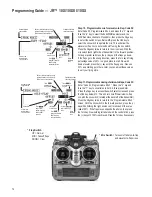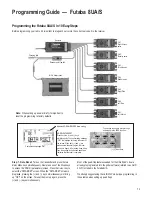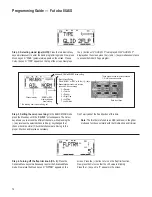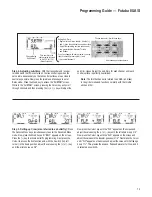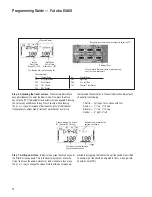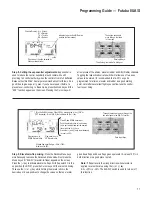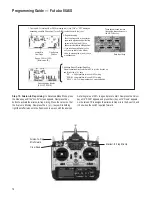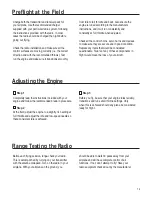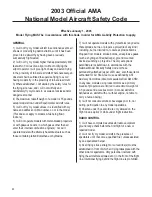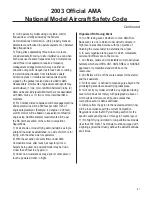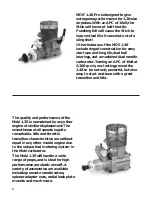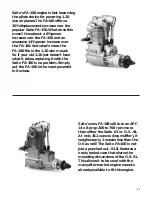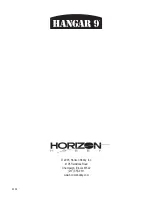
81
4) I will operate my model using only radio control
frequencies currently allowed by the Federal
Communications Commission. (Only properly licensed
Amateurs are authorized to operate equipment on Amateur
Band frequencies.)
5) Flying sites separated by three miles or more are
considered safe from site-to site interference, even when
both sites use the same frequencies. Any circumstances
under three miles separation require a frequency
management arrangement which may be either an
allocation of specific frequencies for each site or testing
to determine that freedom from interference exists.
Allocation plans or interference test reports shall be
signed by the parties involved and provided to AMA
Headquarters. Documents of agreement and reports may
exist between (1) two or more AMA Chartered Clubs, (2)
AMA clubs and individual AMA members not associated
with AMA Clubs, or (3) two or more individual AMA
members.
6) For Combat, distance between combat engagement line
and spectator line will be 500 feet per cubic inch of
engine displacement. (Example: .40 engine = 200 feet.);
electric motors will be based on equivalent combustion
engine size. Additional safety requirements will be per
the RC Combat section of the current Competition
Regulations.
7) At air shows or model flying demonstrations a single
straight line must be established, one side of which is for
flying, with the other side for spectators.
8) With the exception of events flown under AMA
Competition rules, after launch, except for pilots or
helpers being used, no powered model may be flown
closer than 25 feet to any person.
9) Under no circumstances may a pilot or other person
touch a powered model in flight.
Organized RC Racing Event
10) An RC racing event, whether or not an AMA Rule
Book event, is one in which model aircraft compete in
flight over a prescribed course with the objective of
finishing the course faster to determine the winner.
A. In every organized racing event in which contestants,
callers and officials are on the course:
1. All officials, callers and contestants must properly wear
helmets, which are OSHA, DOT, ANSI, SNELL or NOCSAE
approved or comparable standard while on the
racecourse.
2. All officials will be off the course except for the starter
and their assistant.
3.”On the course” is defined to mean any area beyond the
pilot/staging area where actual flying takes place.
B. I will not fly my model aircraft in any organized racing
event which does not comply with paragraph A above or
which allows models over 20 pounds unless that
competition event is AMA sanctioned.
C. Distance from the pylon to the nearest spectator (line)
will be in accordance with the current Competition
Regulations under the RC Pylon Racing section for the
specific event pending two or three pylon course layout.
11) RC Night flying is limited to low performance models
(less than 100 mph). The models must be equipped with
a lighting system that clearly defines the aircraft’s attitude
at all times.
2003 Official AMA
National Model Aircraft Safety Code
Continued

